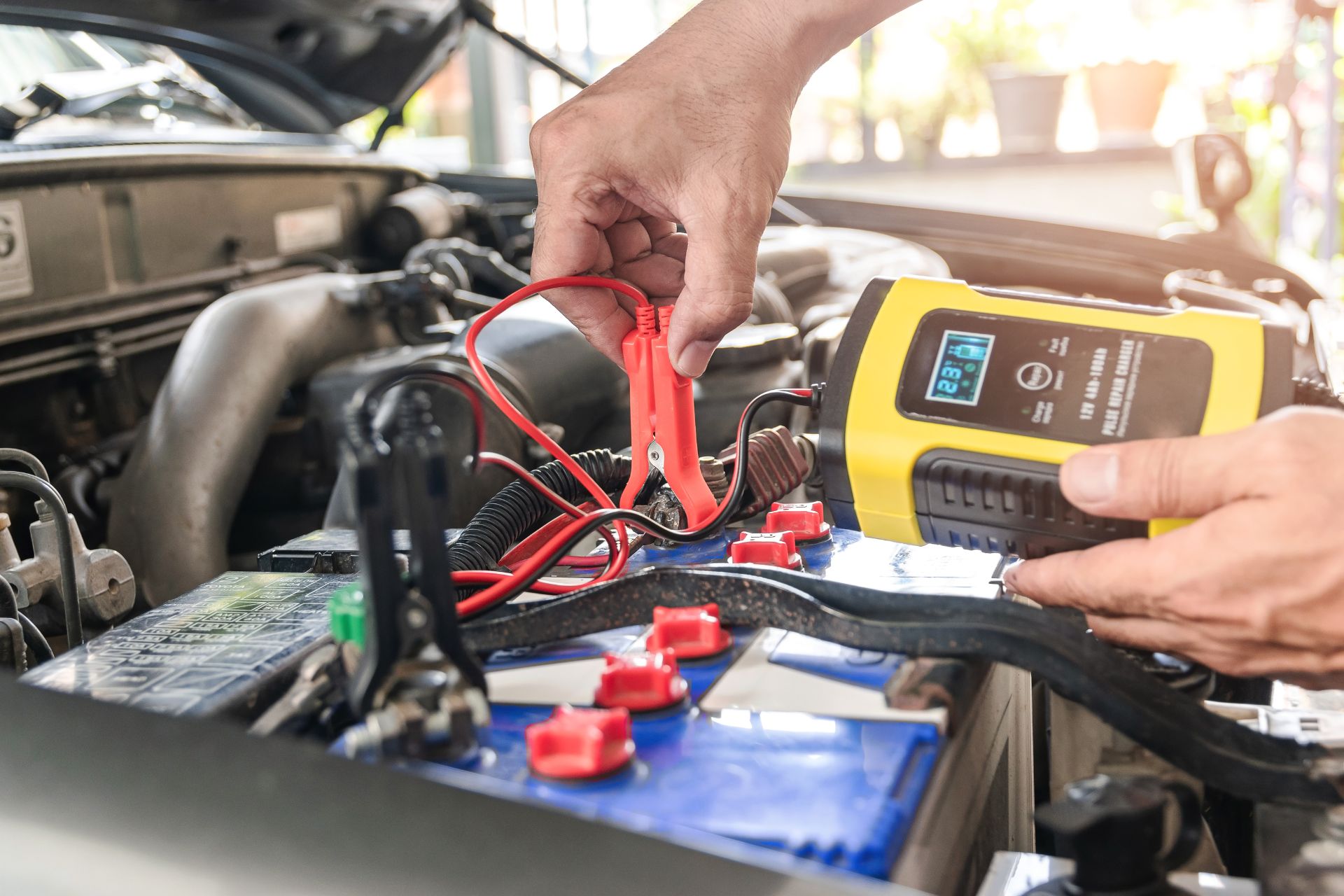How Long Does a Car Battery Last?
The lifespan of a car battery depends on several factors, including the type of battery, driving habits, and environmental conditions. On average, a standard car battery lasts between 3 to 5 years. However, extreme temperatures, frequent short trips, and lack of maintenance can significantly shorten its life.
Some high-quality car batteries are designed to last longer, but even they require proper care to reach their full potential. Knowing the signs of a failing car battery and taking preventive measures can save you from unexpected breakdowns.
Factors That Affect Car Battery Life
Several elements influence how long a car battery will last:
1. Driving Habits
Frequent short trips don’t allow the battery to recharge fully, leading to a reduced lifespan. Conversely, regular long drives help maintain the charge.
2. Climate Conditions
Extreme heat can cause the liquid inside the battery to evaporate while freezing temperatures can reduce its ability to hold a charge.
3. Electrical Load
Modern vehicles come equipped with numerous electrical components, from infotainment systems to advanced safety features. Overloading the battery with excessive use of these systems can drain it faster.
4. Maintenance
Neglecting regular maintenance, such as cleaning terminals and checking fluid levels, can lead to corrosion and reduced efficiency.
Signs Your Car Battery Might Be Failing
Recognizing the early signs of a failing car battery can help you avoid inconvenient situations:
- Slow Engine Crank: If your engine takes longer than usual to start, it could indicate a weak battery.
- Dim Lights: Dimming headlights or interior lights may signal that the battery isn’t supplying sufficient power.
- Warning Light: Many vehicles have a dashboard warning light that activates when the battery or charging system has an issue.
- Corrosion: Visible corrosion on the battery terminals can interfere with the electrical connection.
Tips to Prolong the Life of Your Car Battery
Maintaining your car battery can extend its lifespan and improve its reliability. Here are some essential tips:
1. Keep It Clean
Dirt and corrosion on the terminals can disrupt the electrical flow. Clean the battery terminals with a mixture of baking soda and water using a wire brush.
2. Check the Voltage Regularly
Use a multimeter to check the battery’s voltage. A healthy car battery should read around 12.6 volts when fully charged.
3. Drive Your Car Regularly
If your vehicle sits idle for extended periods, the battery may lose its charge. Regular driving helps keep the battery charged.
4. Avoid Overloading Electrical Systems
Turn off lights, air conditioning, and other electrical components when the engine is off to prevent unnecessary drain on the battery.
5. Park in a Garage
Extreme weather conditions can affect your car battery’s performance. Parking in a garage or shaded area can help regulate the temperature.
6. Inspect the Battery for Damage
Look for cracks, leaks, or other physical damage. If you notice any, replace the battery immediately to avoid further issues.
7. Use a Battery Charger
Invest in a quality battery charger to maintain the charge, especially during cold months or if you don’t drive often.
When to Replace Your Car Battery
Even with the best care, every car battery will eventually need replacement. Most manufacturers recommend replacing the battery every 3 to 5 years, but this can vary based on usage and maintenance.
If you notice frequent issues like difficulty starting the engine, dimming lights, or persistent warning lights, it’s time to have your battery tested by a professional.
Choosing the Right Car Battery
When it’s time to replace your battery, choosing the right one is crucial. Consider the following factors:
- Battery Size: Ensure the new battery fits your vehicle’s specifications.
- Cold Cranking Amps (CCA): This rating indicates how well the battery performs in cold temperatures.
- Reserve Capacity: A higher reserve capacity ensures the battery can power essential systems during emergencies.
- Warranty: Look for a battery with a good warranty to protect your investment.
Environmental Impact of Car Batteries
Car batteries contain chemicals that can harm the environment if not disposed of properly. When replacing your battery, take the old one to a recycling center or an auto shop that offers recycling services. Many retailers provide discounts for returning used batteries.
The Role of Regular Maintenance in Battery Health
Routine vehicle maintenance goes beyond just the battery. Ensuring that your alternator, starter, and other electrical components are in good condition helps the battery function efficiently. Regular inspections by a trusted mechanic can prevent issues from escalating.
Final Thoughts
A car battery is a vital component of your vehicle, powering everything from the ignition system to the lights and electronics. By understanding its lifespan and following simple maintenance tips, you can extend its life and avoid unexpected breakdowns.
If you’re experiencing issues with your car battery or need a replacement, contact TrilliTires in Richmond Hill for expert advice and quality services. Keep your vehicle running smoothly with our reliable solutions!

